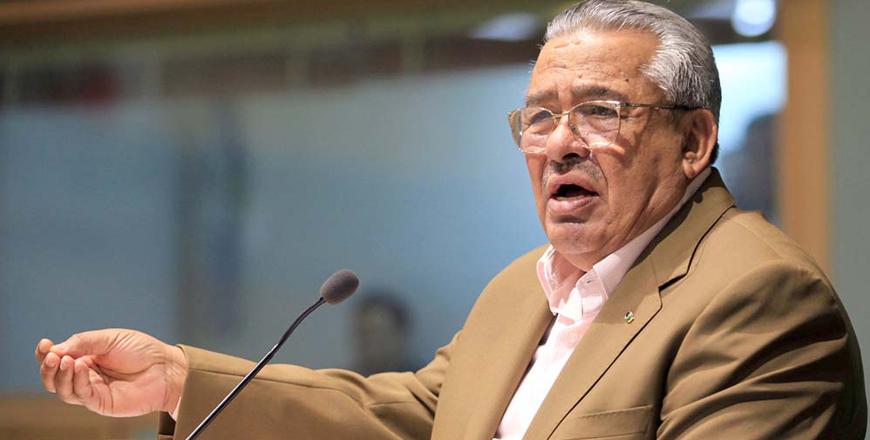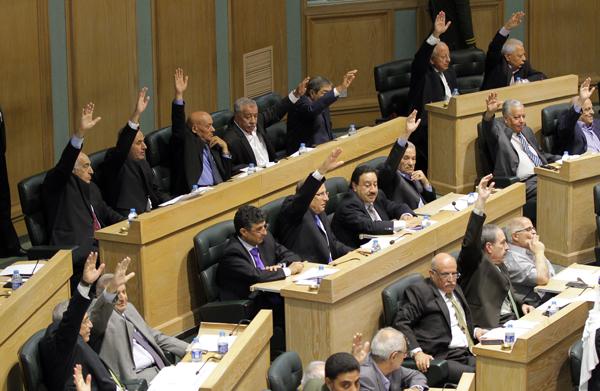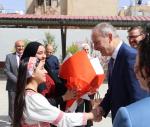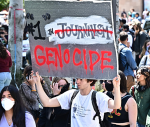You are here
House, Senate to hold joint session on disputed draft laws
By JT - Sep 18,2015 - Last updated at Sep 18,2015

Senate President Abdur-Rau’f S. Rawabdeh chairs an Upper House meeting to discuss draft decentralisation law on Thursday (Petra photo)
AMMAN — The two Houses of Parliament will meet in a joint session on Sunday to settle their disagreements on the 2015 decentralisation law, the Independent Elections Commission Law (IEC) and the draft prohibition of chemical weapons law.
The Senate on Thursday insisted for the second time on its position on the reform-oriented decentralisation bill, insisting that 10 per cent of the elected governorate council seats be allocated for women, the Jordan News Agency, Petra, reported.
Under senators’ amendments, the number of the elected governorate council members will increase to 85 from 75 after adding the women’s quota.
Last week, the Upper House rejected MPs’ amendments to the law which included no quota for women in governorate councils, insisting that 10 per cent of the elected governorate council seats be allocated for women.
The deputies themselves had initially approved a 15 per cent women’s quota, supporting a proposal by MP Wafaa Bani Mustafa in that regard, but they went back on their decision ahead of the final vote.
According to Article 92 of the Constitution: “Should either House twice reject any draft law and the other accept it, whether or not amended, both the Senate and the Chamber shall hold a joint meeting under the chairmanship of the president of the Senate to discuss the matters in dispute.”
The Senate had refused for the second time to endorse the Lower House’s changes to the IEC Law. The House had decided to include appointment of the agency’s employees in the oversight agency under the jurisdiction of the civil service by-law, insisting instead that recruitment at the IEC should be governed by a special by-law.
The Upper House on Thursday also refused to make any compromise on its position on the draft prohibition of chemical weapons law, scrapping a provision added by MPs allowing the use of chemical agents for crowd control.
The Upper House insisted that all chemical agents, including tear gas, should not be used even in crowd control as MPs had proposed.
Defending their rationale, senators, in a session held in April, said the decision was aimed at bringing the law into harmony with the Convention on the Prohibition of the Development, Production, Stockpiling and Use of Chemical Weapons and on Their Destruction, which Jordan has ratified.
As reworded by MPs, “only” tear gas in the form of grenades or aerosol cans and “no other chemical agents” shall be used by security bodies to control riots.
Related Articles
AMMAN — The Senate on Sunday won its duel with the Lower House over the 2015 decentralisation law, earning women, in the outcome, a quota th
AMMAN — The Lower House on Sunday rejected the Senate’s amendments to the 2015 decentralisation bill, insisting on a law free of women’s quo
AMMAN — The Senate on Monday upheld for the second time its position on the 2015 amendments to the Independent Elections Commission (IEC) La

















